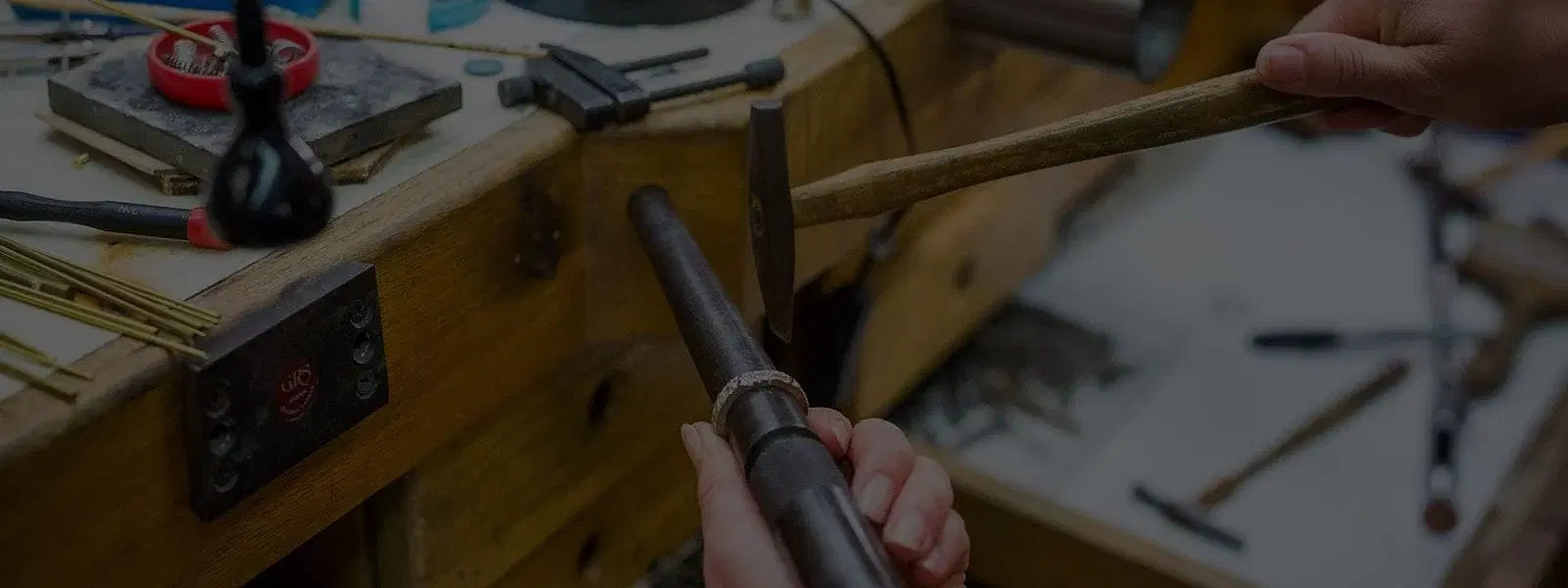How to Modify Wooden Ring Clamps
One persistent daily challenge a bench jeweler faces is trying to figure out the best way to hold onto tiny, delicate objects while performing mechanical operations such as sawing, filing or burring bearings for stone setting.
 There are dozens of tools available for this purpose, some centuries old and some that are modern, sophisticated and often quite expensive. An alternative is to make a simple modification to a wooden ring clamp which holds rings and other jewelry items that turns it into a useful, multi-function holder.
1 Minute Read
This article describes the easy steps on how to modify wooden ring clamps. Read on and watch the video to learn how!
One persistent daily challenge a bench jeweler faces is trying to figure out the best way to hold onto tiny, delicate objects while performing mechanical operations such as sawing, filing or burring bearings for stone setting.
There are dozens of tools available for this purpose, some centuries old and some that are modern, sophisticated and often quite expensive. An alternative is to make a simple modification to a wooden ring clamp which holds rings and other jewelry items that turns it into a useful, multi-function holder.
The ring clamp is usually braced against the bench pin as you work. Trouble can develop if the clamp slips while you are applying pressure. When you push downward on the ring with a prong pusher, for example, the clamp can slip out of place even slightly and cause a sudden movement that results in a chipped stone, damaged prong or injury to your finger or hand.
If you grind a channel in the ring clamp, however, you can lock it in place with the bench pin. This provides more stable support for the work in progress and enhances your accuracy and safety.
An 80 grit " x " abrasive band and mandrel (drum arbor) works well for this modification. Draw a reference line on the ring clamp about 10mm from the end. Use the abrasive band to create a two-millimeter indentation around the ring clamp. Test the groove against your bench pin(s) and make adjustments as necessary so the clamp locks in place.
This simple modification will make your tool more stable and reduce the chance of damaged jewelry or injury.
You assume all responsibility and risk for the use of the safety resources available on or through this web page. The International Gem Society LLC does not assume any liability for the materials, information and opinions provided on, or available through, this web page. No advice or information provided by this website shall create any warranty. Reliance on such advice, information or the content of this web page is solely at your own risk, including without limitation any safety guidelines, resources or precautions, or any other information related to safety that may be available on or through this web page. The International Gem Society LLC disclaims any liability for injury, death or damages resulting from the use thereof.
The All-In-One Jewelry Making Solution At Your Fingertips
When you join the Ganoksin community, you get the tools you need to take your work to the next level.
Trusted Jewelry Making Information & Techniques
Sign up to receive the latest articles, techniques, and inspirations with our free newsletter.
